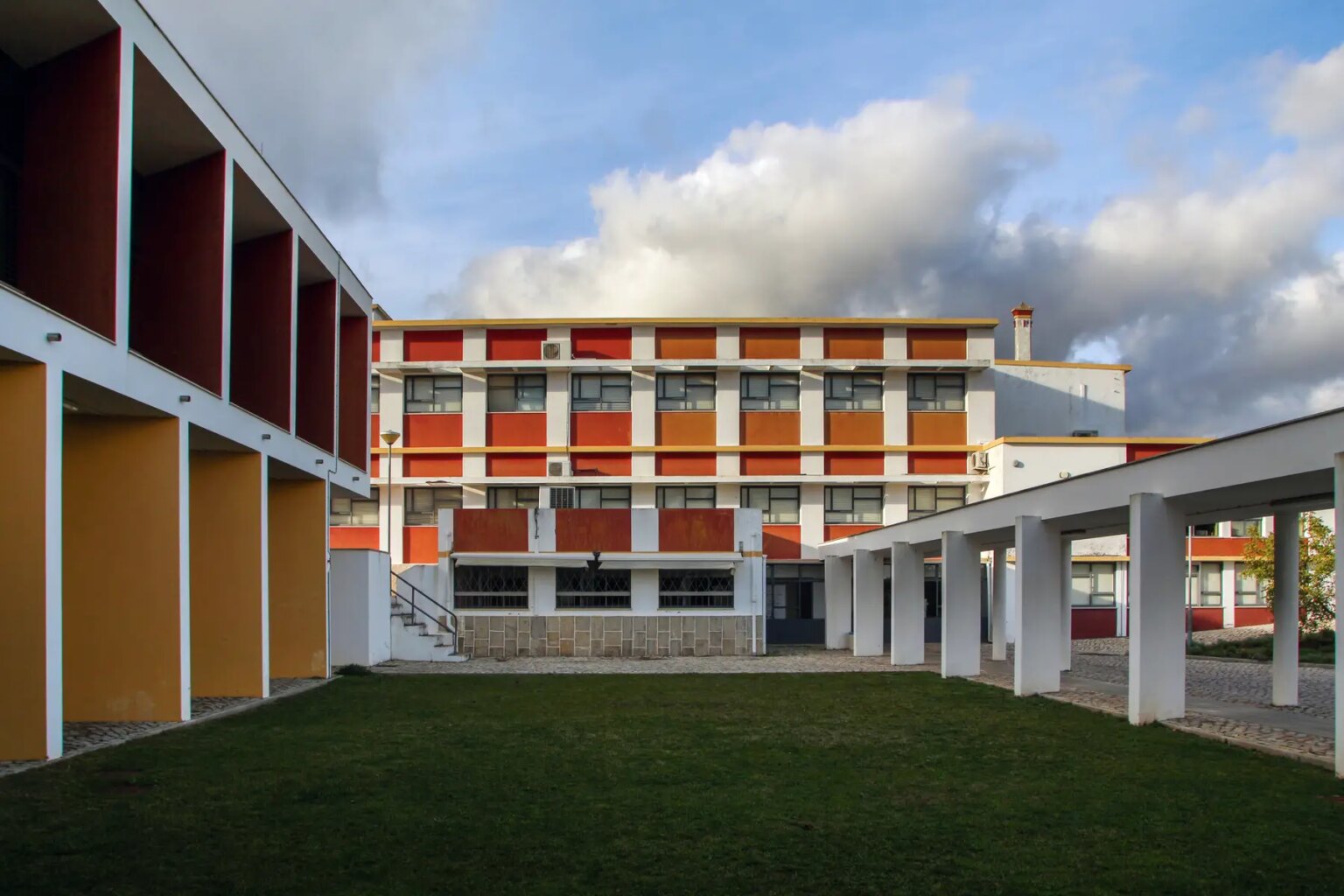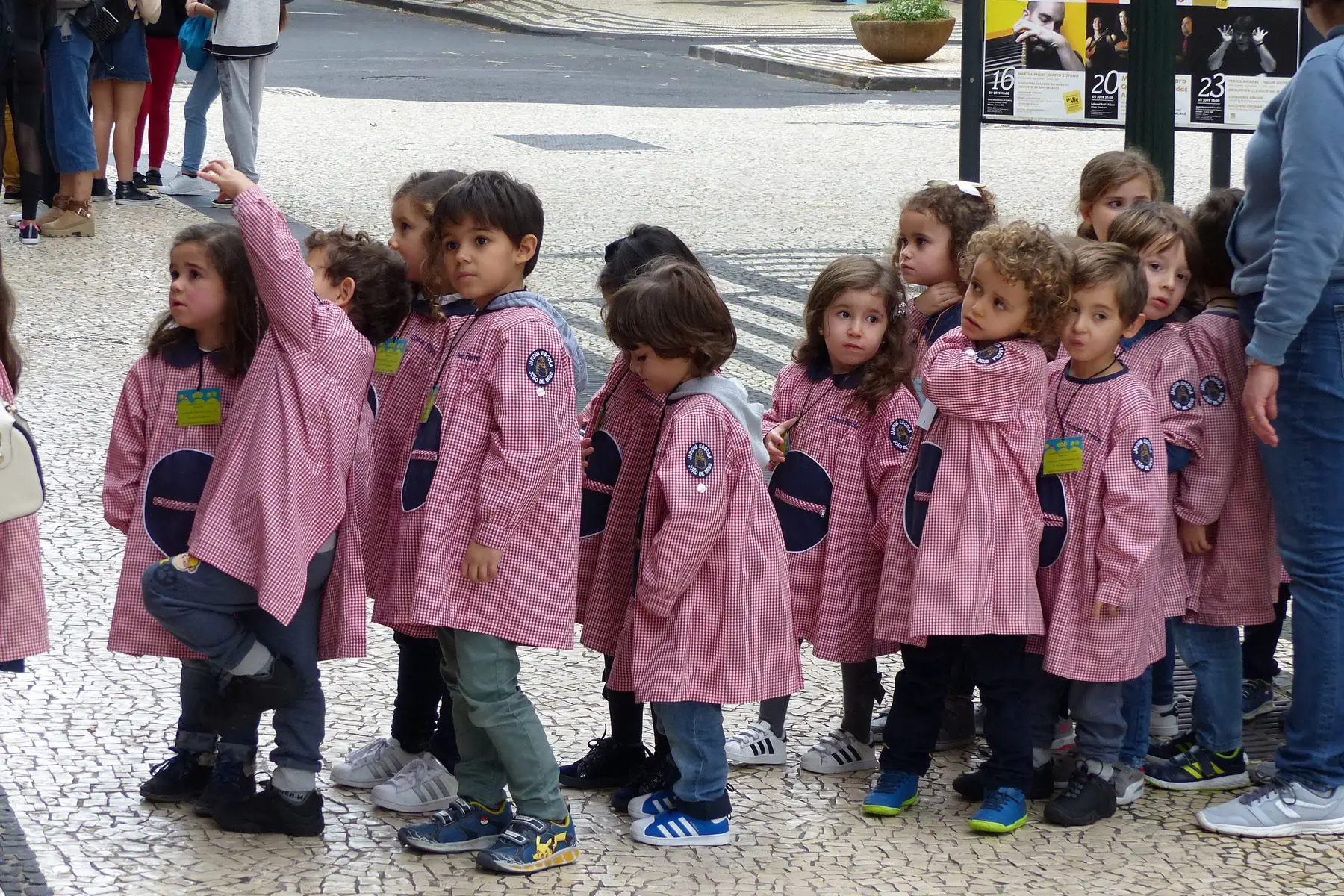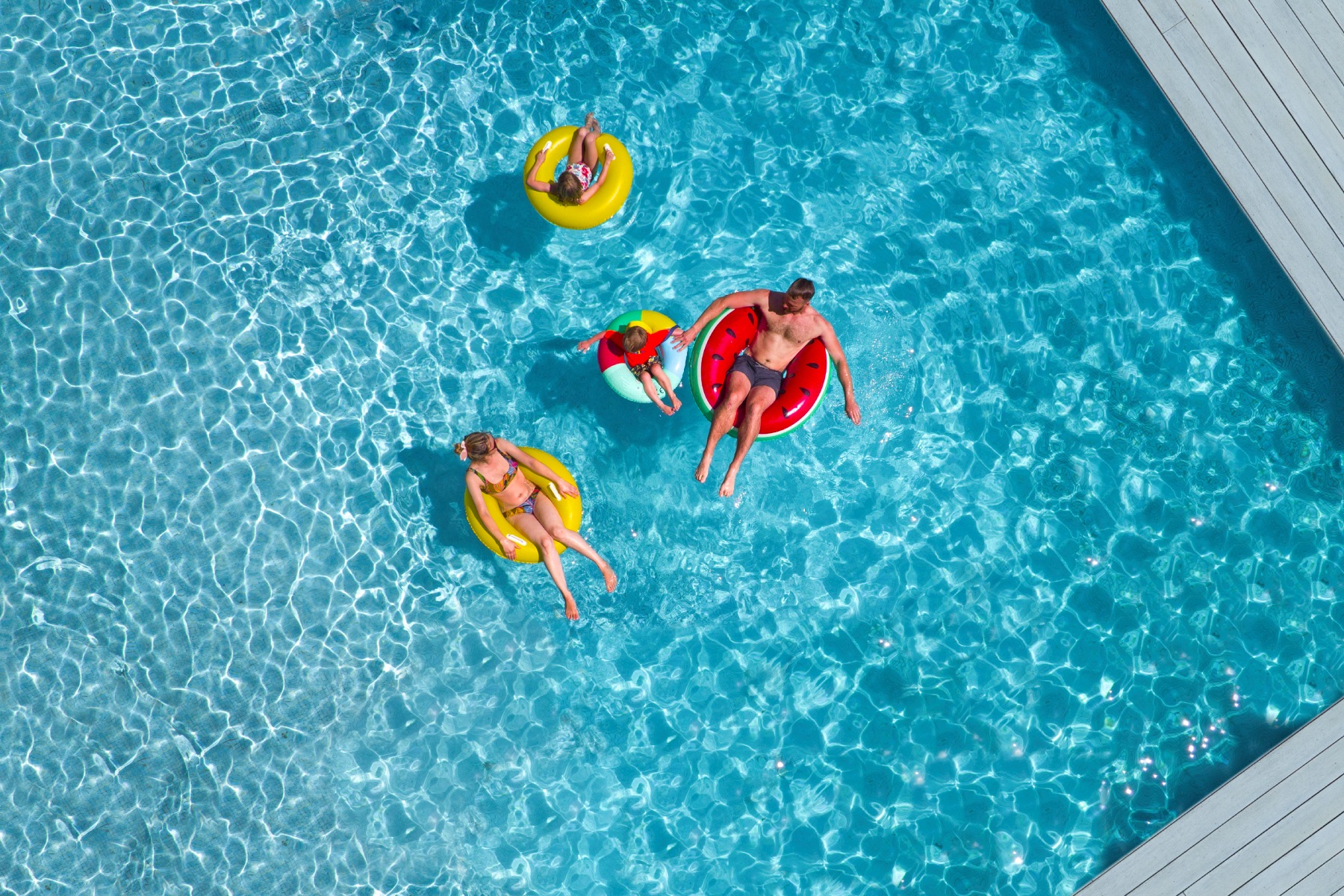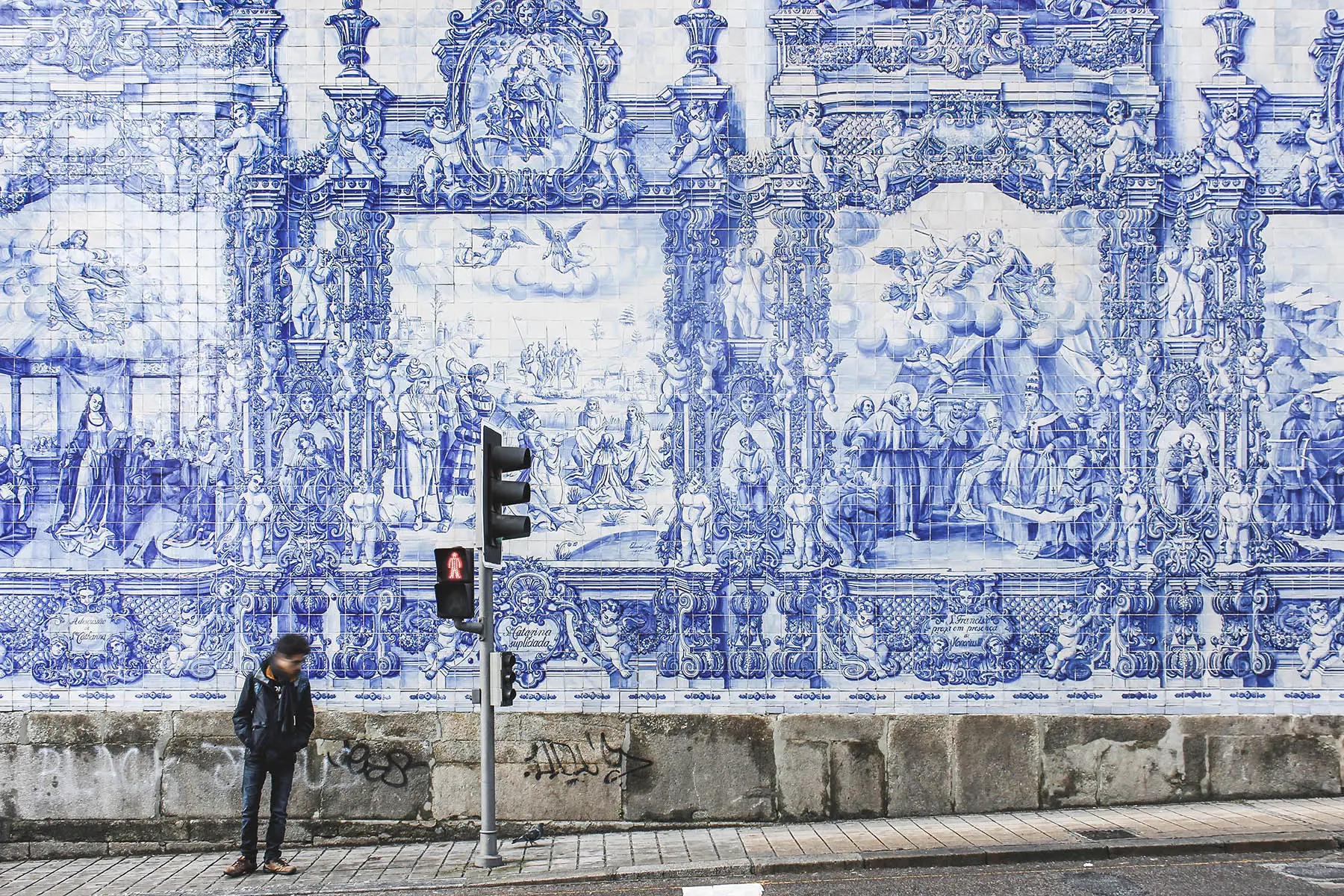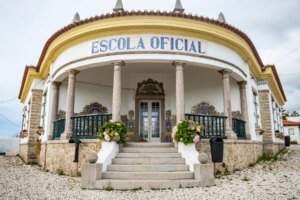Children studying in Portugal can choose between state secondary schools that prepare them for university, vocational schools which offer more practical subjects, or private international schools that provide globally recognized certificates. However, selecting the right secondary school in Portugal can be challenging, especially for expats who aren’t familiar with the education system in the country.
Learn everything you need to know when it comes to picking a secondary school in Portugal, including the following:
The secondary education system in Portugal
Children between the ages of 15 and 18 must apply for secondary education in Portugal. This three-year period is the equivalent of upper secondary education in some countries. Secondary schools are known as escolas secundárias and can be either public or private.
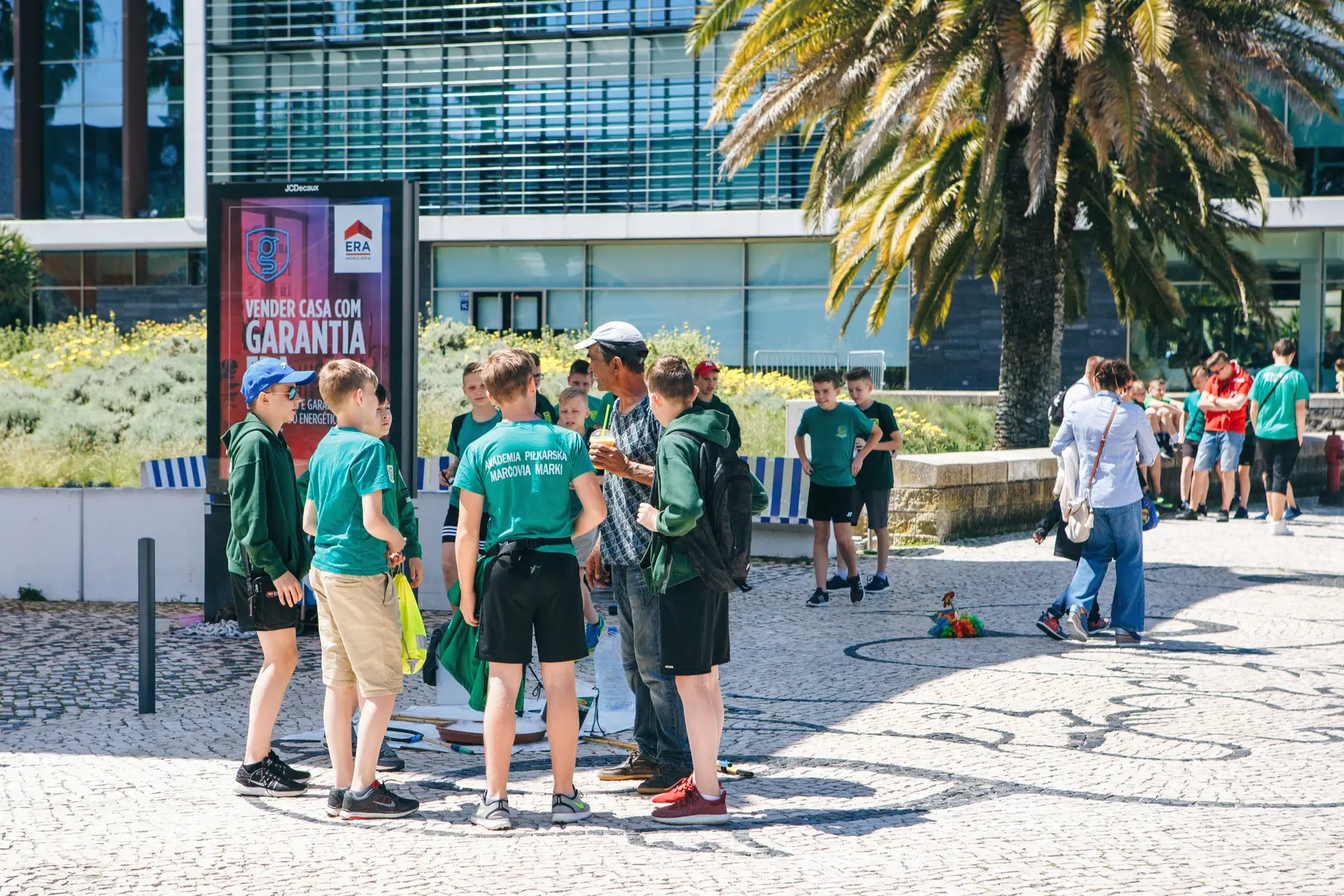
Essentially, there are three main tracks in the secondary education system in Portugal and pupils can choose which one they want to follow.:
- Science-humanities (Cursos Científico-Humanísticos) – prepares children for university with science, economics, linguistics, and visual arts
- Vocational courses (Cursos Profissionais) – this is tied to a specific job and is usually offered at a vocational school
- Specialized artistic (Cursos Artísticos Especializados) – a creative field run by an art school (escola artística) or a music school (conservatório)
State and public secondary schools in Portugal
Portugal is home to around 587 public secondary schools. In 2019/2020, 308,764 children attended a public school, which is more than half of the total number of students. Out of these, 184,740 opted for science-humanities courses and 69,079 for vocational courses.
In Portugal, public secondary education is free. That said, parents will still need to cover some costs, including materials, school meals, and field trips. State schools generally offer high-quality education for pupils who are considering going on to university. However, because Portuguese is the only language of instruction, your child will need to have a good grasp of it.
The curriculum in state secondary schools in Portugal
Secondary education in Portugal runs for three years, from grades 10 to 12. The core curriculum in state schools includes subjects like Portuguese, philosophy, and a foreign language. However, other subjects will vary with each course. For example, if you choose visual arts, you can study drawing and art history. If you pick science and technology, on the other hand, you’ll study mathematics and chemistry. Additionally, everyone has at least two hours of physical education per week. While students can choose to study several subjects, the majority opt for the science-humanities courses.
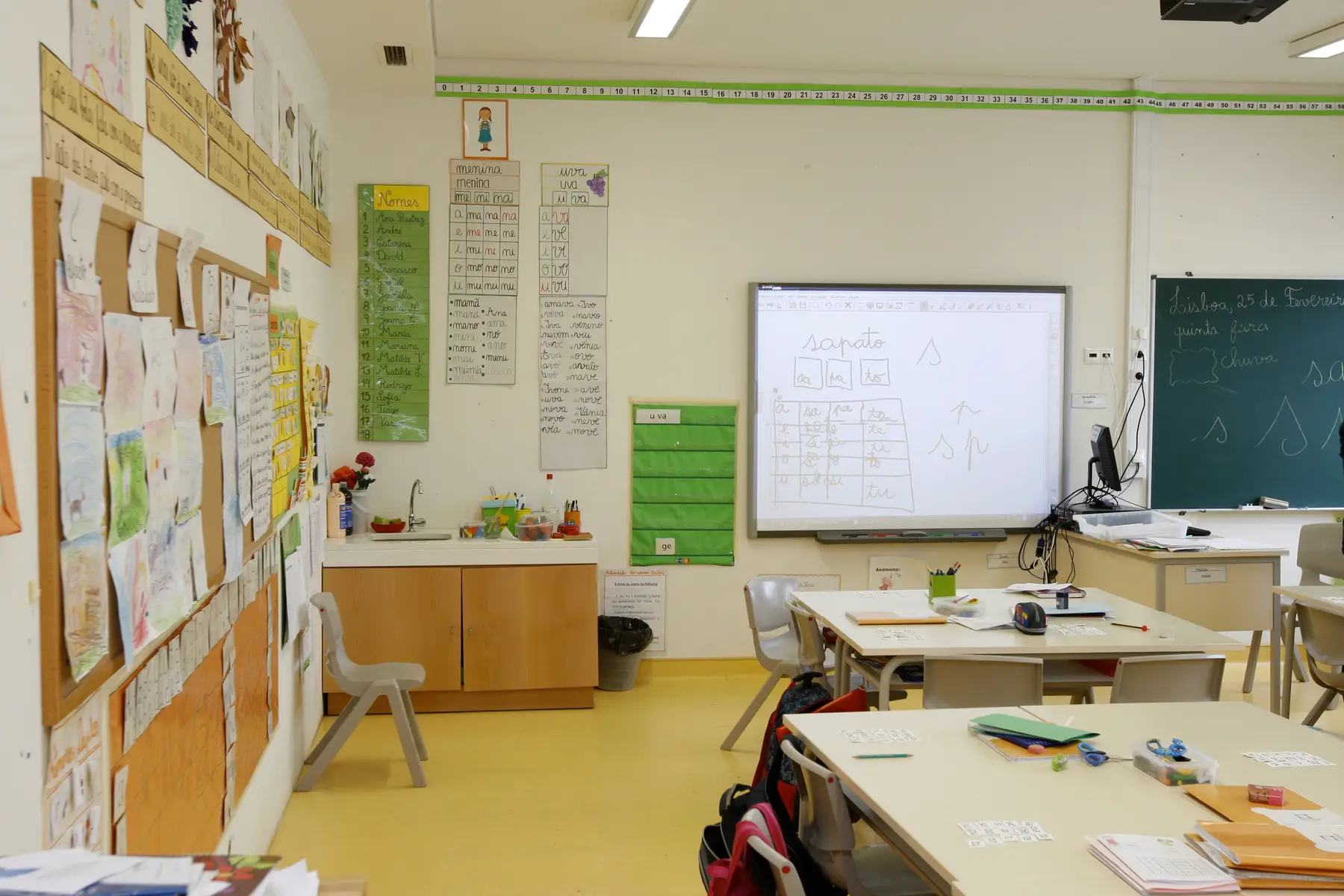
In Portugal, the secondary school year starts in September and ends in June, and is divided into three terms. However, there are mandatory exams in grades 11 and 12 which take place in July (first round) and September (second round).
Teachers grade students on a scale of 1 to 20, with 20 being the highest. Their evaluation includes at least one written assessment, as well as class participation and homework. The annual exams also count toward the student’s final average.
Specialized artistic education
Specialized artistic institutions offer another alternative for secondary education in Portugal. Children looking to pursue a career in a creative field – such as visual arts, dance, or music – generally apply to these schools. The curriculum offers a mix of individual and group lessons that encourage creativity and collaboration.
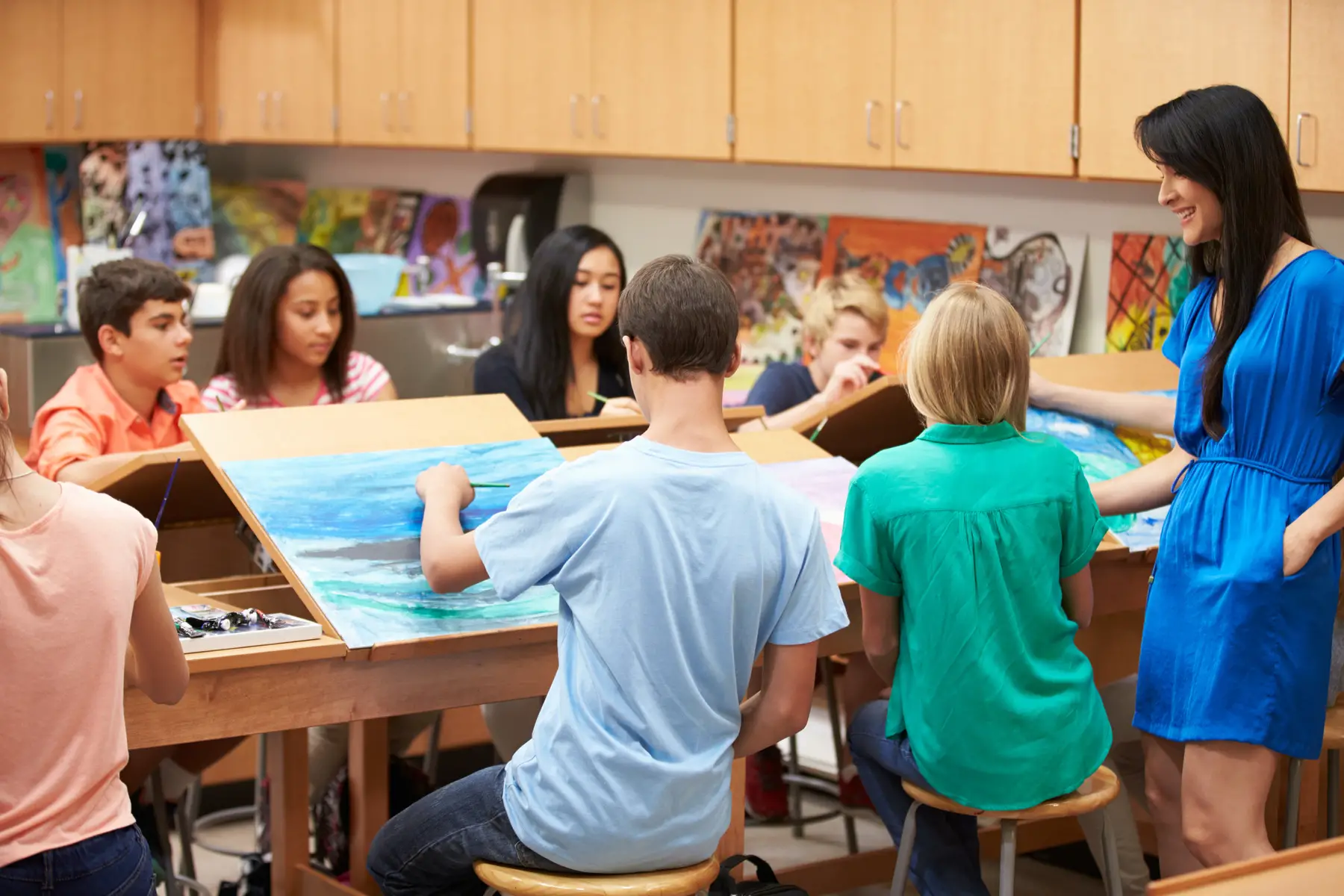
There are also private schools that may offer more resources. You can read more about that further down this guide.
The pros and cons of state schools in Portugal
Naturally, state schools in Portugal come with both advantages and disadvantages, and this is something you will want to consider when deciding if this is the most suitable option for your child. Below are some of the biggest factors to weigh up.
Pros
The main benefit of studying in a state secondary school in Portugal is that tuition is free. As classes are all taught in Portuguese, it also offers students a good opportunity to integrate into the local culture and improve their language skills.
Cons
On the flip side, state institutions come with a few drawbacks. For instance, they might lack teachers or resources, which reduces the subject choices. Furthermore, the qualifications might not be the same as in your home country, which can make it harder to apply for university outside Portugal.
Applying to secondary state schools in Portugal
Enrollment for state secondary education in Portugal usually takes place at the school. To apply, students must have completed nine years of primary education. They will also need to complete an enrollment form that states their preferred courses. Artistic schools, on the other hand, may require entry assessments.

In addition to the enrollment form, parents will need to submit the following documents:
- Portuguese citizen card (for parents and children); expats can present a passport or a residence permit
- Proof of address (comprovativo de morada) that confirms your home or work address in Portugal
- Portuguese Tax Identification Number (número de identificação fiscal – NIF) for your family
- When transferring schools, you should also provide a verified certificate of qualifications (certificado de habilitações) which is translated into Portuguese
Note: Remember to allow enough time to get the necessary documents translated into Portuguese. This is where a translation service such as Lingoking can really help.
While it is common to choose a school close to home, there are exceptions; especially if you can’t find a specific course near you. This is particularly true for vocational and artistic streams that have fewer offerings across the country.
Private secondary schools in Portugal
There are 381 private secondary institutions in Portugal, but they are not as popular as public schools. In fact, only 19.7% of students attend them. Private schools are known as escolas privadas or escolas particulares.
There are several types of private secondary institutions on offer, including general private schools, specialized artistic academies, and international schools which are favored by expats. Below is an outline of the most popular options.
General education and religious schools
Due to Portugal’s religious background, many private secondary schools are often Catholic institutions that teach religious subjects alongside the general curriculum. These schools are renowned for their discipline and diverse extracurricular activities, and some even offer the International Baccalaureate (IB) with lessons taught in English.
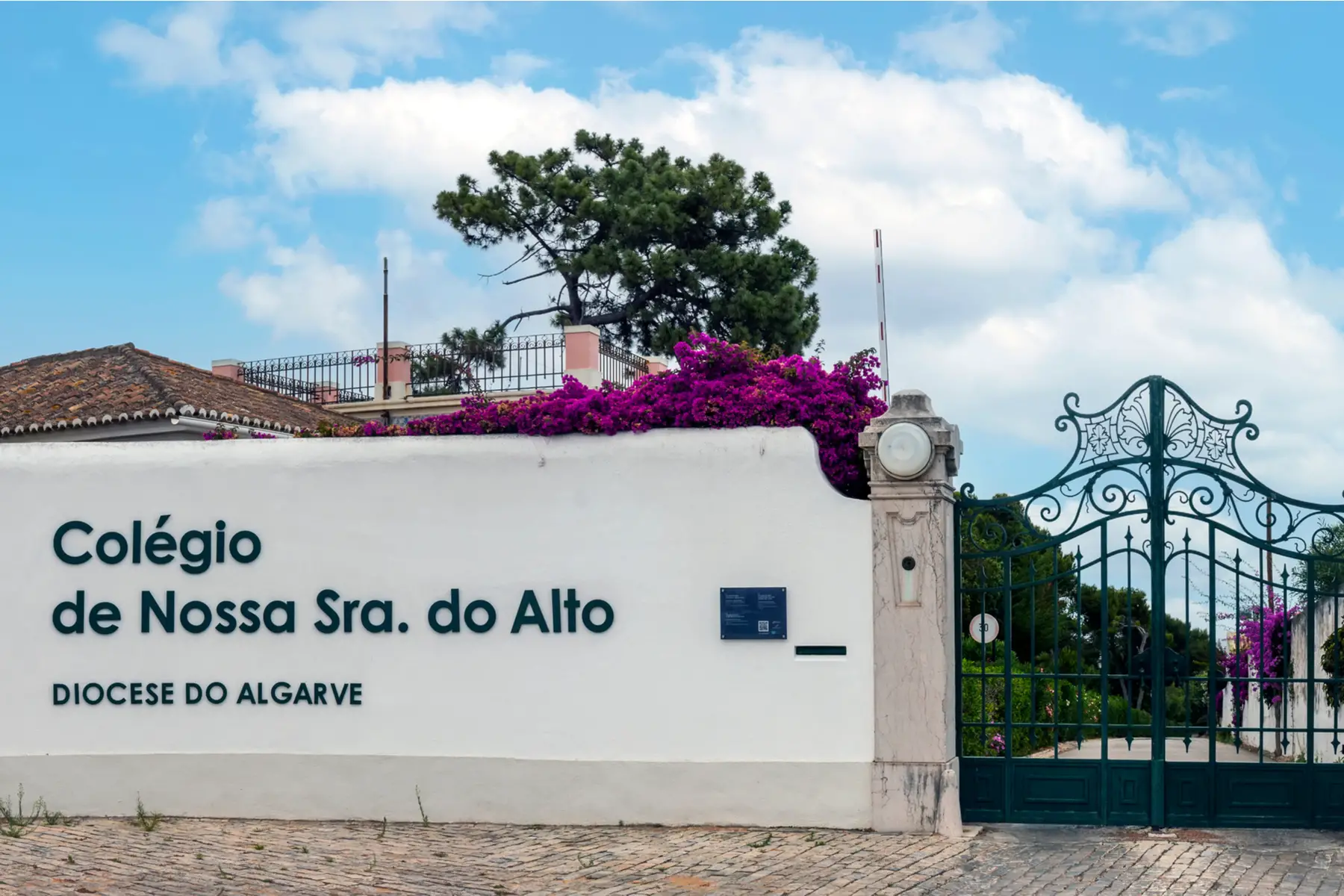
Private secondary schools often score high in exam rankings, so many parents consider them to be a worthy alternative. That said, tuition for a private secondary school in Portugal can cost anywhere from €2,500 to €10,000 a year, so this is an important factor to consider.
International schools in Portugal
Expat families in Portugal often choose to enroll their children in an international school. This is because they provide a multicultural environment, as well as a broader range of worldview subjects.
There are several British and American schools in Portugal, as well as some French and German ones. Most of these offer the International Baccalaureate (IB), as well as country-specific qualifications, such as SATs (American schools) or GCSEs and A-Levels (British schools).
There are many international schools offering secondary education to consider, including:
Tuition prices for international secondary schools in Portugal can vary. Fees starts at around €5,000 a year but can go up to €20,000.
The pros and cons of international schools in Portugal
Like state schools in Portugal, international schools also come with both advantages and disadvantages. Below are some of the biggest factors that you might want to consider when deciding if this is the right option for your child.
Pros
Studying at an international school in Portugal has many advantages. For starters, these schools often provide a higher level of education than state schools and have access to more activities and resources.
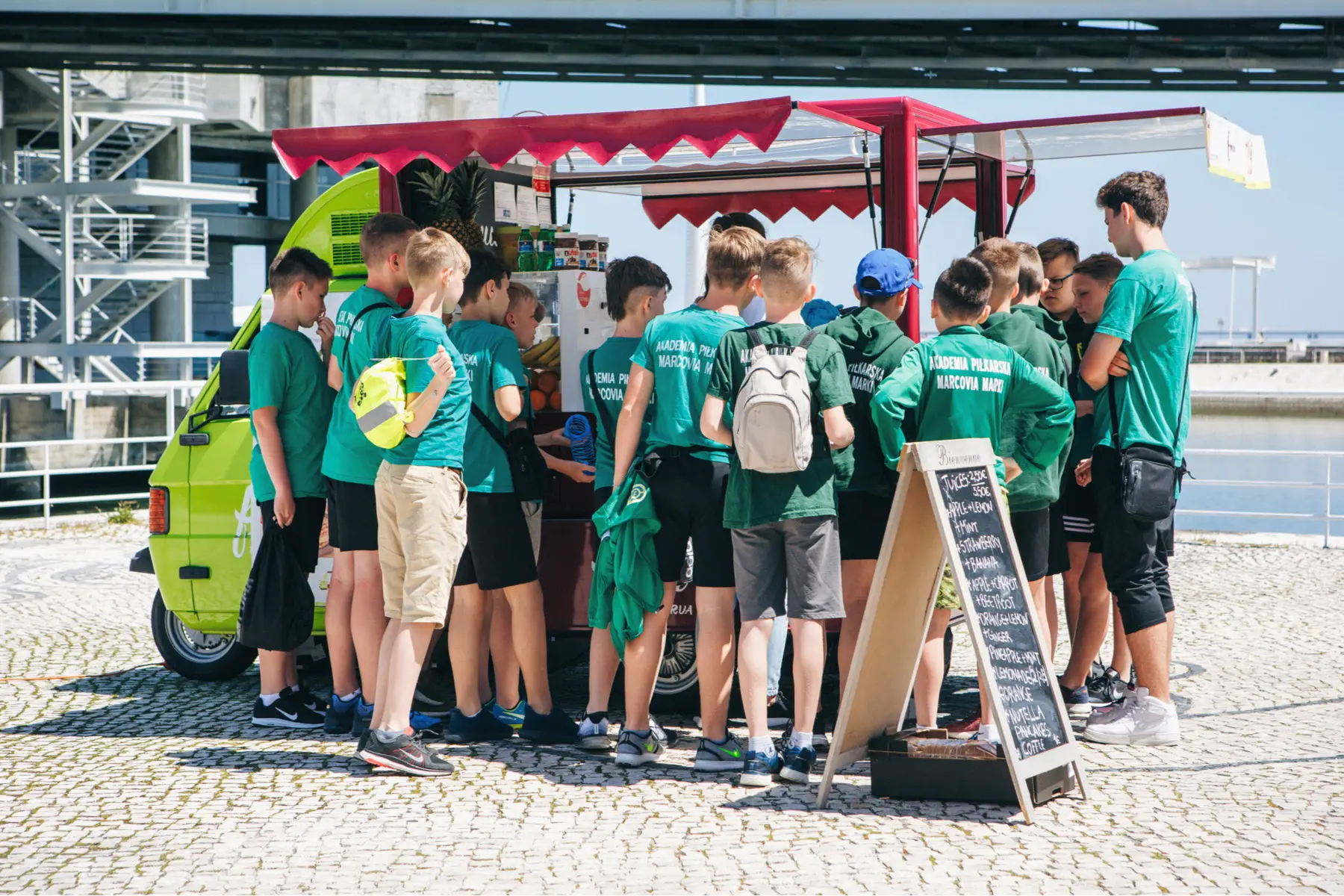
Children attending these schools also have the opportunity to engage with staff and peers from around the world. Furthermore, they will gain globally recognized qualifications, which may help them when it comes to applying to a university overseas.
Cons
The main downside of international schools is the cost, which can be substantial. Children also tend to integrate less into Portuguese culture and language due to the lack of connection with the local community. You can read more about international schools in our guide.
Graduating in Portugal
To complete secondary education in Portugal, students must achieve at least a grade of 10 out of 20 in all of their subjects. These grades are given based on various assessments and class involvement throughout each term.
Most courses also include three mandatory exams: two at the end of Grade 11 and one at the end of Grade 12. Passing these exams is a requirement if you want to apply to a Portuguese university.
The International Baccalaureate (IB) in Portugal
The International Baccalaureate (IB) has been available in Portugal since 1986. There are currently 12 schools in the country that offer the IB Diploma program, including both private Portuguese institutions and international schools.
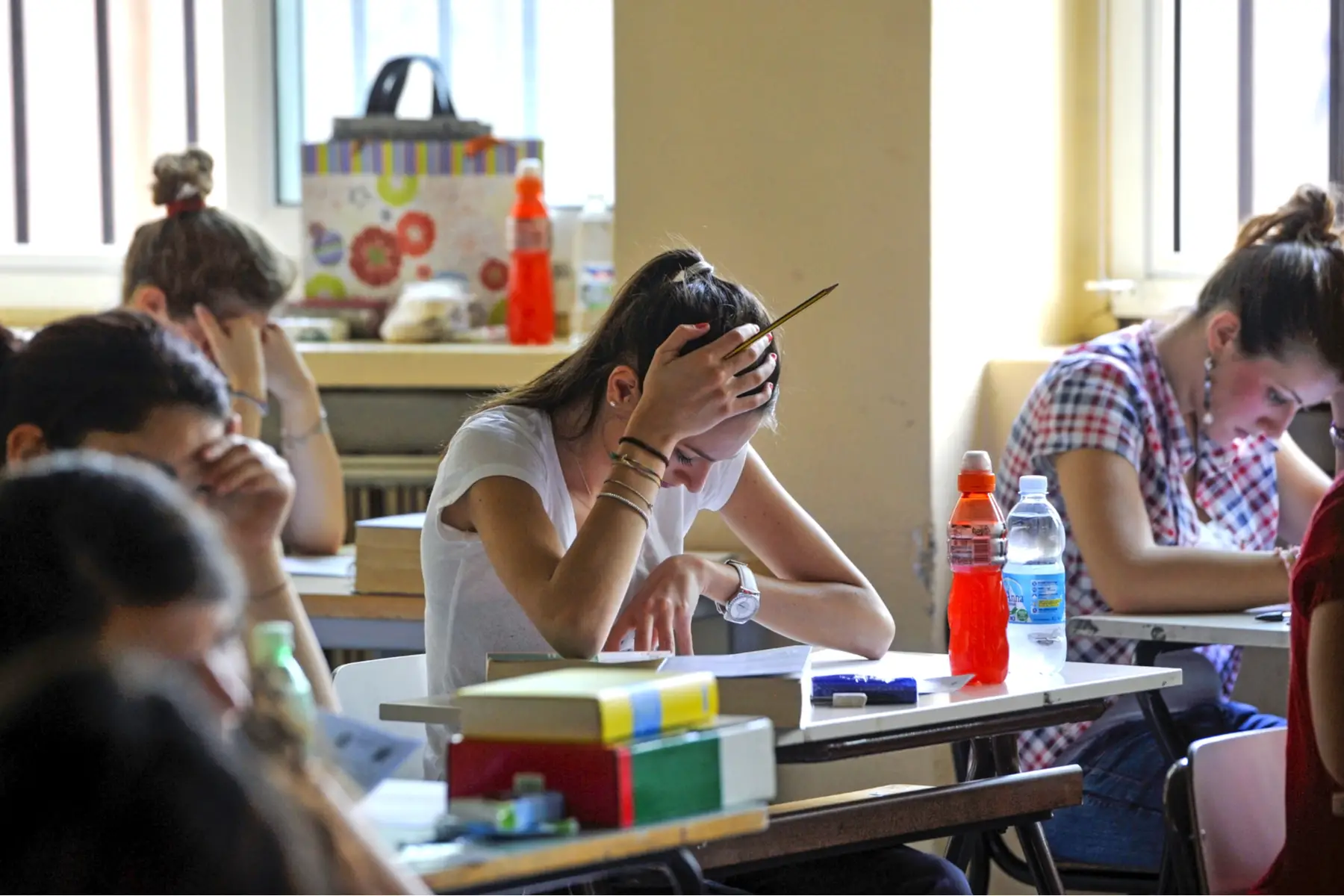
Students need to take six courses, some of which are at a higher level and others at a standard level. Subjects include languages, maths, and science. To graduate, they must also complete 50 hours of CAS (creativity, activity, service), a theory of knowledge course, and deliver an extended essay on a topic of their choice.
Trade schools in Portugal
From the age of 15, students can apply for a trade school (known as escola professional) in Portugal. Most vocational schools are public, which means that they are free. The application process and requirements are similar to state schools.
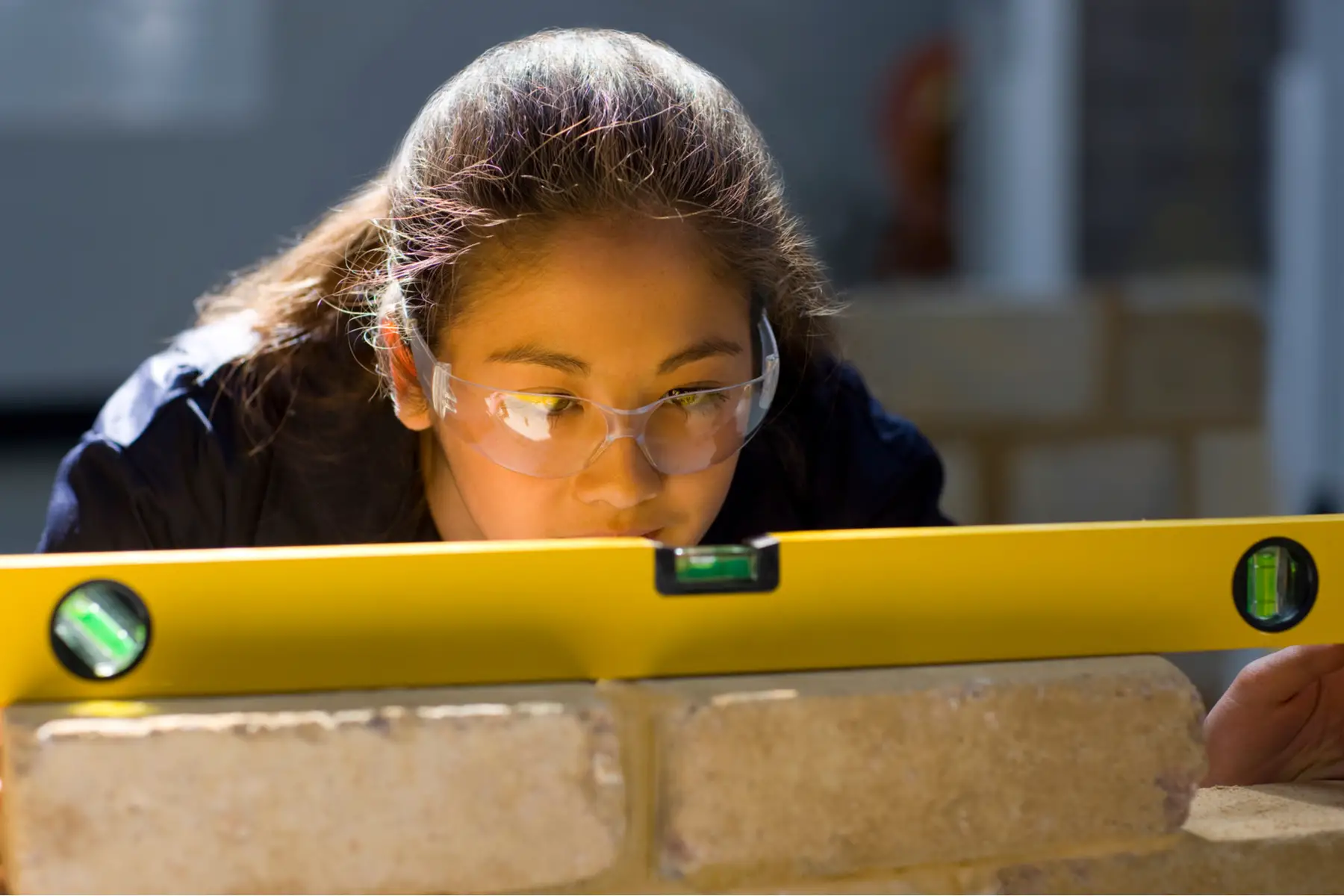
The courses run for three years and prepare students for both university and the job market. The curriculum usually includes more technical subjects and an apprenticeship at a local business.
Vocational courses are available in several areas, from agriculture to media and hospitality. They are the ideal choice for pupils who already have a career in mind and prefer more practical training. Vocational schools don’t usually have mandatory exams, either. That said, students may need to take entry exams if they want to apply to university.
Useful resources
- European Commission Eurydice – official information about secondary education in Portugal
- Direção-Geral da Educação (in Portuguese) – frequently asked questions about secondary schools in Portugal
- Alto Comissariado para as Migrações (ACM) – support for migrants regarding education in Portugal
